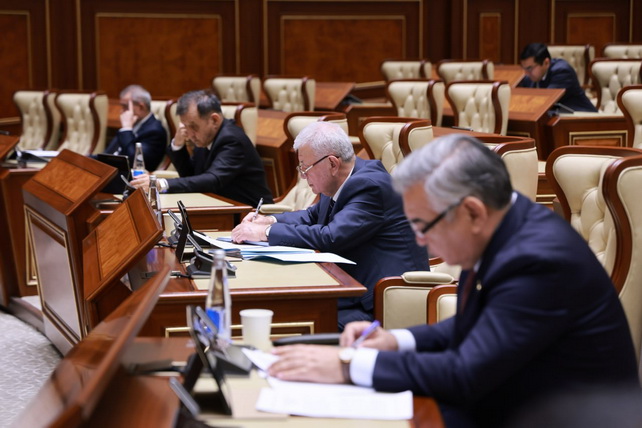
Senators Support Reform of Traffic Violation Penalty System
Senators Support Reform of Traffic Violation Penalty System
Tashkent, Uzbekistan (UzDaily.com) — At the eleventh plenary session, the Senate of Uzbekistan considered and approved the Law “On Amendments and Additions to the Code of Administrative Liability of the Republic of Uzbekistan.”
The document is aimed at improving legal regulation in the field of road safety and enhancing the prevention of administrative offenses.
Senators noted that Uzbekistan has already established the necessary legal and institutional framework to improve road traffic culture, modernize the driver training system, and introduce digital technologies in traffic management.
These efforts have already produced measurable results: in the first eight months of this year, the total number of road traffic accidents decreased by 2.4%, accidents with injuries fell by 1.5%, fatal accidents — by 5.6%, and pedestrian-related incidents — by 1.6%.
However, senators emphasized that preventive measures to curb administrative violations have not yet achieved the desired impact. Analysis of international experience showed that in many countries, alongside fines, oral or written warnings are also applied.
This approach — when individuals who commit minor offenses for the first time receive a warning instead of a fine, with an explanation of the social consequences of their actions — has proven effective in reducing repeat violations.
The newly adopted law introduces a similar practice in Uzbekistan. Amendments to the Code of Administrative Liability now allow for the use of warnings as a penalty measure for minor traffic-related violations.
In addition, the law clarifies the procedure for recording offenses using automated photo and video surveillance systems. A new article has been added, explicitly defining the types of violations that may be recorded through such means.
It is also established that administrative penalties for offenses recorded by technical means must be applied within one month from the date of the violation.
According to senators, the adoption of this law will enhance the effectiveness of preventive measures, strengthen public trust in state institutions, and improve convenience for road users. The law was approved by the upper chamber of parliament.